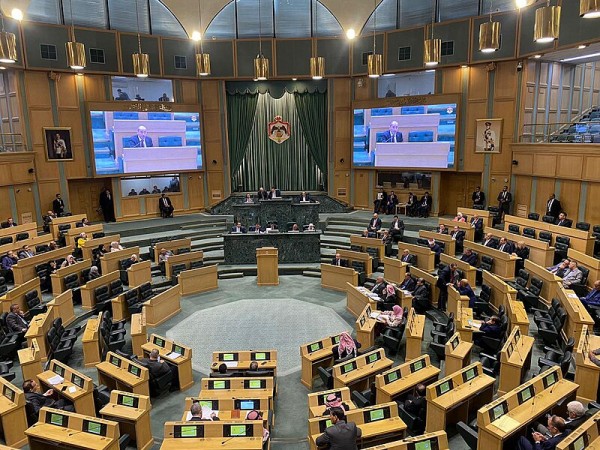The Jordanian Media Commission blocked the news website 7iber.org on Monday, just one year after blocking the outlet’s original domain, 7iber.com.
The original domain was blocked in June 2013 on the basis of the country’s Press and Publication Law (2012), which requires websites to obtain licences from the statutory Media Commission in order to publish. The law also states that editors-in-chief of each website must be members of the Jordan Press Association and imposes responsibility on them for the content of the website, including reader comments.
“IPI has repeatedly highlighted how these provisions lead to unacceptable restrictions on press freedom and a degree of state control that is incompatible with free and independent journalism,” IPI Press Freedom Manager Barbara Trionfi said. “Jordan must immediately start a process to amend the relevant section of the Press and Publication Law.”
Providing justification for the websites’ blockage in 2013, the government said that it was acting in line with the law, which was necessary to ensure professional behaviour of media outlets and hold them accountable for their content. However, journalists complain that these new rules discourage competition and prevent young journalists from starting new websites.
Talking to IPI yesterday, Jordanian journalist Lina Ejeilat, co-founder and editor-in-chief of 7iber.com, said that immediately after the law was passed, many journalists protested. However, she continued, they eventually gave in to government pressure and applied for licences in line with the Press and Publication Law.
Some news outlets, including 7iber.com, AmmanNet, J024, Ainnews, Khabarjo and Kui Al Urdun sued the government arguing that the law violated freedom of expression guarantees in Jordan’s Constitution.
When those efforts failed as well, most websites went ahead and got a licence, but Ejeilat said that sometimes that does more harm than good.
“When that happens, it doesn’t pressure the government,” Ejeilat said. “Most websites are licensed anyway so they got what they wanted. There’s no urgency, no pressure. “
7iber.com was one of the websites that decided to not get the licence. They operated for a few months until June 2, 2013 when Jordanian authorities ordered Internet service providers to stop granting access to over 200 websites that had not met the conditions of the new law.
Instead of getting the licence, 7iber.com switched its domain name to 7iber.org and operated for a year before being blocked again on Monday.
“We have no idea what triggered this particular blocking,” Ejeilat said. “No one informs you. They don’t send a letter or warn you to get licensed. You just find out randomly.”
For now, 7iber.org is operating under 7iber.net, but no one at the company knows exactly how long that will last. Ejeilat said 7iber does not anticipate seeking a licence in the future.
“What we oppose is the licensing requirement, which requires every publication or website to get permission from the government in order to operate,” she wrote in an article for 7iber.net published on Tuesday. “The requirement to license is one of the oldest tools of government censorship and restriction of freedom of expression.”
Ejeilat also told IPI that the law creates a chilling effect for journalists in Jordan.
A report IPI released following a May 2014 emergency mission in response to the blocking of 200 websites also raised that concern. The report stated that the law could affect other Middle Eastern countries in the region, setting a dangerous precedent for countries that struggle with press freedom.
The surrounding countries are one of the reasons that Jordan has been able to pass these laws with little pressure from outside communities and organisations.
“Jordan can get away with much more than it did three or four years ago,” Ejeilat said. “We’re always being compared to what’s worse. In general, in Jordan there is a reversal of gears. Whatever space we thought opened up, they’ve retrieved from that and resorted to business as usual.”
Ejeilat recommended that the government abolish the licensing law to avoid the chilling effects on journalists. She also said that international pressure is always important to push for more genuine freedoms.
“This law is not the tool to achieve more accountability in the media,” Ejeilat said. “There are people in the government that just don’t seem to grasp this idea that you can’t possibly control what is allowed to be published online and what isn’t. It does not make sense.”


